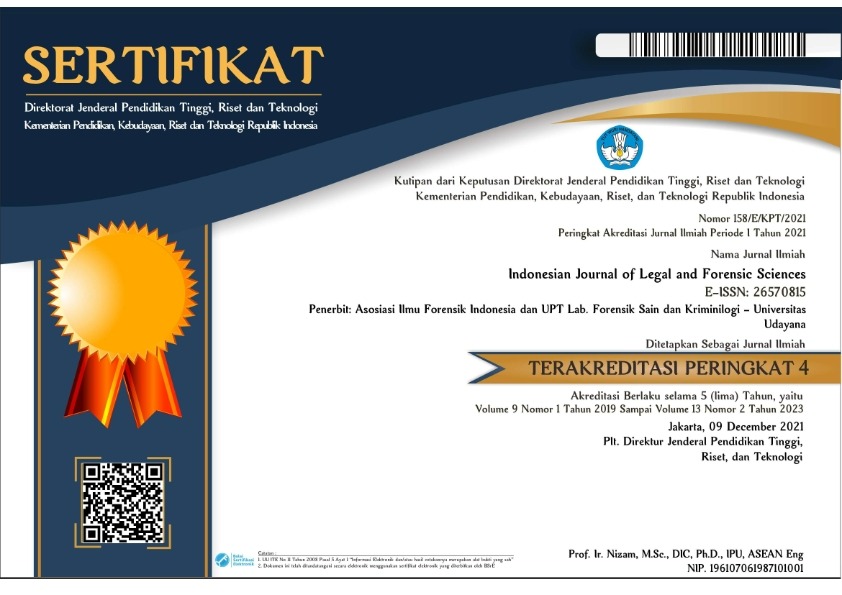About the Journal
Indonesian Journal of Legal and Forensic Sciences (IJLFS), with ISSN: 2657-0815 (online media) and 1979-1763 (print media), is a leading scientific journal currently held at the Laboratorium Forensik Sains dan Kriminologi, Udayana University. Located in Badung, Bali, Indonesia. IJLFS was born from writings resulting from a workshop held by the Forensic Sciences Communication Forum in 2008.
In 2010 from the Forum Komunikasi Ilmu-Ilmu Forensik the Asosiasi Ilmu Forensik Indonesia (AIFI)/Indonesian Forensic Sciences Association (IFSA) was born, and IJLFS was built by Prof. Made Agus Gelgel Wirasuta as Editor in Chief of IJLFS. Currently IJLFS is carried out by Udayana University in collaboration with the Indonesian Forensic Sciences Association (Indonesian Forensic Sciences Association) to strengthen its relationship with the professional forensic community. This partnership not only increases the position of this journal in Indonesia but also aligns it with best practices and studies in legal and forensic science education
IJLFS has been accredited by the Indonesian Ministry of Research and Technology and is ranked SINTA 3 based on the Science and Technology Index. Specializing in legal and forensic sciences, IJLFS serves as a platform for the advancement of theoretical research or practical applications to reach researchers, academics and engineering practitioners worldwide.
With its commitment to open access, IJLFS ensures that the full versions of its articles are freely accessible, beyond geographic boundaries. Writers from various countries are encouraged to archive all stages of their work, without being charged Article Processing Charges (APCs).
Using a CC BY license, this journal fosters international collaboration by allowing sharing and adaptation of content under the terms of the license. The review process, characterized by a double-blind method, maintains academic integrity by promoting impartial evaluation. IJLFS practice is aligned with communities, academics and practitioners in the wider forensic field, reflecting a vision of innovation, collaboration, and excellence in scholarly communication. IJLFS further underlines its commitment to quality and accessibility in the dissemination of legal and forensic science knowledge.






